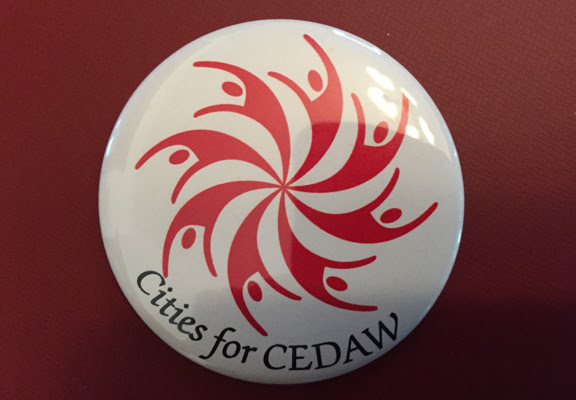From Women's eNews
After Fiji ratified a U.N. women's rights treaty and began to adopt laws that mirrored its goals, good things began to happen politically for women. The age for marriage for both men and women was raised to 18, finds a 2012 study commissioned by the World Bank. Divorce became easier to obtain and property was divided more equitably between men and women, measuring both financial and non-financial contributions to the family. Payments due after a divorce, such as alimony, became enforceable in law.
In Kenya, in 2005, a high court relied on the treaty to give daughters an equal right to family inheritance, which had been barred by law. Women in many other countries have also benefited from the Convention on the Elimination of all Forms of Discrimination Against Women, or CEDAW.
For girls and women in the United States--where gun violence, rape, sex harassment and domestic violence are all major problems --treaty approval is unlikely any time soon. That's because the United States is one of only a handful of countries--including Iran, Somalia and Sudan--that hasn't ratified the longstanding, U.N.-backed treaty, which is continually updated to strengthen human and civil rights for women.
U.S. presidents have given the treaty their backing. The Clinton and Carter administrations supported the treaty and in 2009 the Obama administration backed ratification. But for more than 30 years the U.S. Senate has refused to take the treaty to a vote. In light of that, CEDAW backers are now turning to city governments to try to put pressure on the Senate.
At least 40 cities have expressed interest in putting in place their own version of CEDAW, says Karen Mulhauser, chair of the United Nations Association of the USA, which is pushing for ratification at the local level and by the U.S. Senate.
D.C. Seeks to Amend Law
The immediate target of opportunity, she says, is in the District of Columbia. In March, the D.C. City Council unanimously proposed a law that would amend the city's Human Rights Act to incorporate the principles of CEDAW, affirming human rights and equality for women and eliminating discrimination. Hearings are likely this fall.
The District is especially intriguing to CEDAW's backers because all of its legislation must also undergo congressional review, which could then force a debate on CEDAW in Congress. In other words, the District could open a backdoor that could draw more attention to the cause.
"We will see what Congress does with it," says Mulhauser, who spoke by phone with Women's eNews.
CEDAW has some congressional backers, but it's not clear if there is widespread support.
U.S. Reps. Carolyn Maloney, D-N.Y., and Jan Schakowsky, D-Il., sponsored and introduced a House resolution that urges Senate ratification. But even if it passes, it does not compel Senate action. The resolution is pending in a House subcommittee.
So the treaty sits.
U.S. Rep. Donna Edwards, D-Md., hosted a meeting in the Capitol earlier this month to call attention to the treaty. She says U.S. ratification would send an important message about women's rights, health and safety around the globe.
"When you respect women's rights and protect women's safety and enable them to be part of the economy, every economy around the world will grow," she says. U.S. ratification, she adds, "is an important acknowledgement that puts us all on the same page for the elimination of discrimination."
Mulhauser says that when the two municipalities in the U.S. that have so far approved CEDAW-related ordinances, it had a positive effect on the status of women. San Francisco was the first city to back CEDAW in 1998. Los Angeles soon followed with a similar law that binds the city to the terms of the treaty.
Such cities are required to conduct a gender audit of how local policies affect men and women, including pay and benefits. The audits also consider how funding of local programs, such as recreation, may affect men and women differently. They also create an oversight body that monitors the implementation of CEDAW's egalitarian goals.
San Francisco also established a council to address domestic violence more cohesively, and another one addressing human trafficking by bringing together different agencies that had a role in domestic violence prevention and response. Mulhauser says those efforts were inspired by the CEDAW principles.

